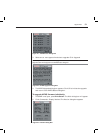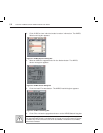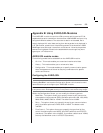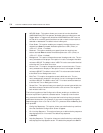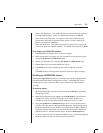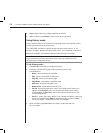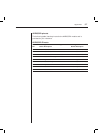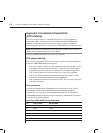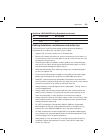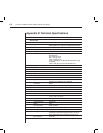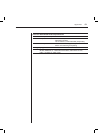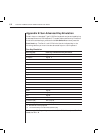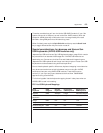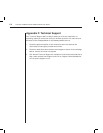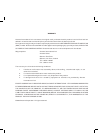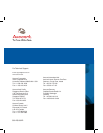
Appendices 59
AutoView 1000R/2000R Wiring Standards (continued)
Pin EIA/TIA 568A EIA/TIA 568B
7 white/brown white/brown
8 brown brown
Cabling installation, maintenance and safety tips
The following is a list of important safety considerations that should be
reviewed prior to installing or maintaining your cables:
• Keep all CAT 5 runs to a maximum of 10 meters each.
• Maintain the twists of the pairs all the way to the point of termination, or
no more that one-half inch untwisted. Do not skin off more than one inch
of jacket while terminating.
• If bending the cable is necessary, make it gradual with no bend sharper
than a one inch radius. Allowing the cable to be sharply bent or kinked
can permanently damage the cable’s interior.
• Dress the cables neatly with cable ties, using low to moderate pressure.
Do not over tighten ties.
• Cross-connect cables where necessary, using rated punch blocks, patch
panels and components. Do not splice or bridge cable at any point.
• Keep CAT 5 cable as far away as possible from potential sources of EMI,
such as electrical cables, transformers and light fi xtures. Do not tie cables
to electrical conduits or lay cables on electrical fi xtures.
• Always test every installed segment with a cable tester. “Toning” alone is
not an acceptable test.
• Always install jacks so as to prevent dust and other contaminants from
settling on the contacts. The contacts of the jack should face up on the
fl ush mounted plates, or left/right/down on surface mount boxes.
• Always leave extra slack on the cables, neatly coiled in the ceiling or near-
est concealed location. Leave at least fi ve feet at the work outlet side and
10 feet at the patch panel side.
• For CAT 5 installations, choose either 568A or 568B wiring standard
before beginning. Wire all jacks and patch panels for the same wiring
scheme. Don’t mix 568A and 568B wiring in the same installation.
• For fi ber installations, choose a supported wiring standard before begin-
ning. Confi gure all jacks and patch panels for the same standard. Do not
mix fi ber types within the same installation.
• Always obey all local and national fi re and building codes. Be sure to
fi restop all cables that penetrate a fi rewall. Use plenum rated cable
where it is required.



